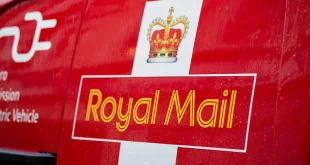The UK government has committed £88m to support the development of electric vans and other cutting-edge zero-emission vehicle technologies.
This significant investment into green transport will drive the UK closer to its net-zero targets by fostering innovation in the automotive sector, reducing emissions, and generating thousands of skilled jobs across the country.
This funding will support 46 projects and forms part of a broader strategy to transition to greener, cleaner modes of transport, which is essential for the UK to meet its climate goals.
Electric vans, in particular, are a key focus, as they offer a practical solution for industries that rely on road transport while reducing environmental impact.
Major funding to drive electric vans and green transport
Announced by the Minister for Industry and Decarbonisation, Sarah Jones, the £88m funding package includes £44.5m from the government, matched by £43.5m from private industry.
This joint initiative will propel the development of electric vans, zero-emission buses, and other green vehicles, from commercial fleets to public services like the NHS and Royal Mail.
A significant portion of this funding is earmarked for electric vans, which are central to reducing emissions in sectors like logistics and delivery.
With rising demand for goods and services, electric vans offer a sustainable alternative to diesel-powered vehicles, particularly in urban areas where air quality and pollution are significant concerns.
By transitioning to electric vans, businesses can drastically lower their carbon footprint while also benefiting from reduced operating costs in the long term.
Additionally, projects are being supported to develop wireless charging solutions, further simplifying the integration of electric vehicles into everyday operations.
Jones commented: “Labour is committed to boosting the jewel in the crown of our manufacturing base – the automotive industry.
“Working in partnership with industry, this funding will drive innovation and propel the development of next-generation zero-emission vehicle technologies.
“From Royal Mail trucks delivering our post to cleaner, greener bus journeys, this funding will back projects that will lower emissions across the country while also supporting skilled jobs.”
Key Projects leading the charge
Among the projects receiving a share of Government funding are two industry leaders: Protean Electric and Gordon Murray Group. These companies are at the forefront of electric vehicle technology and innovation.
Protean Electric is focusing on the development of advanced power-electronics products, a key component for electric vehicles.
Meanwhile, Gordon Murray Group is developing an ultra-lightweight vehicle platform that could be instrumental in the next generation of vehicles.
Combined, these projects represent a £22.5m investment, with £11m in government grants. The technologies being developed through these initiatives are estimated to save nearly 13 million tonnes of CO2 over their lifetimes, demonstrating their critical role in reducing the UK’s overall emissions.
These projects are also expected to create or safeguard around 1,000 green jobs, further emphasising the economic benefits of transitioning to zero-emission vehicles.
Other successful initiatives span five competitions and include a range of innovative projects. These consist of eight collaborative R&D efforts, seven Automotive Transformation Fund (ATF) feasibility studies focused on battery and motor technologies, and 11 projects accelerating the development of automotive products.
Additionally, 14 micro-businesses, SMEs, and start-ups are working on zero-emission technologies to address transport decarbonisation, while six projects are dedicated to exploring zero-tailpipe emission solutions within the niche vehicle sector.
The future of green transport in the UK
The £88m investment is part of a broader push to develop the UK’s electric vehicle infrastructure, which will play a pivotal role in electrifying the country’s transport system.
A recent report from the Faraday Institution predicts that the UK will need around 110 GWh of battery capacity per year by 2030, equivalent to six gigafactories.
The report also estimates that the UK’s EV and battery industries could support up to 270,000 jobs by 2040, further emphasising the economic importance of investing in electric vehicles.
Electrifying the UK’s transport system is a crucial element of the country’s journey toward a net-zero future. With transport accounting for a significant share of the UK’s emissions, the transition to electric vehicles will be a game-changer in reducing pollution and protecting the environment.
The funding will support projects that not only reduce emissions but also create thousands of green jobs, strengthen the UK’s position as a leader in electric vehicle technology, and make the country more attractive to future investors.
The continued investment in this sector signals the UK’s commitment to becoming a global leader in electric vehicle innovation.
Source link



